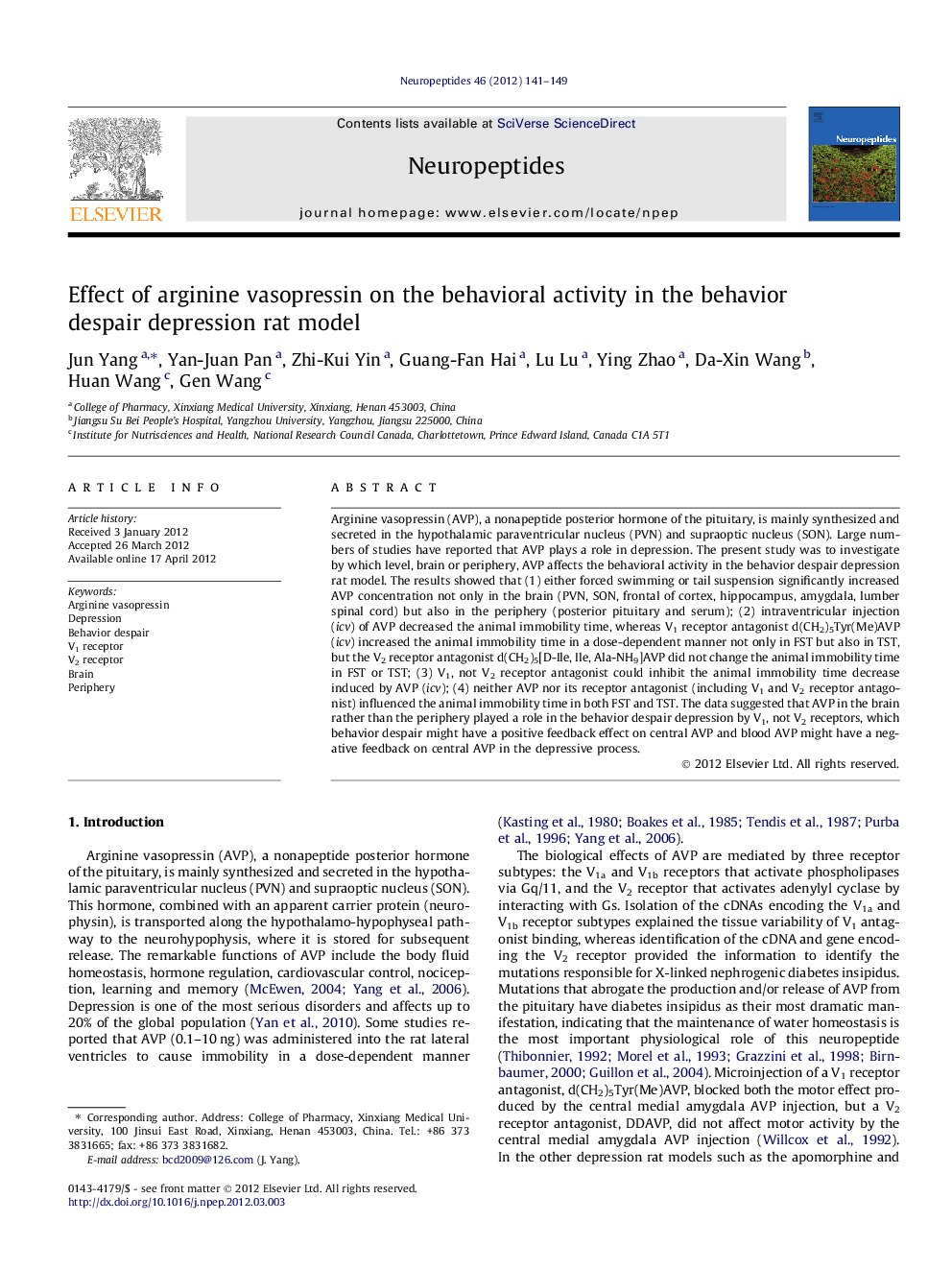| Article ID | Journal | Published Year | Pages | File Type |
|---|---|---|---|---|
| 2808264 | Neuropeptides | 2012 | 9 Pages |
Arginine vasopressin (AVP), a nonapeptide posterior hormone of the pituitary, is mainly synthesized and secreted in the hypothalamic paraventricular nucleus (PVN) and supraoptic nucleus (SON). Large numbers of studies have reported that AVP plays a role in depression. The present study was to investigate by which level, brain or periphery, AVP affects the behavioral activity in the behavior despair depression rat model. The results showed that (1) either forced swimming or tail suspension significantly increased AVP concentration not only in the brain (PVN, SON, frontal of cortex, hippocampus, amygdala, lumber spinal cord) but also in the periphery (posterior pituitary and serum); (2) intraventricular injection (icv) of AVP decreased the animal immobility time, whereas V1 receptor antagonist d(CH2)5Tyr(Me)AVP (icv) increased the animal immobility time in a dose-dependent manner not only in FST but also in TST, but the V2 receptor antagonist d(CH2)5[D-Ile, Ile, Ala-NH9]AVP did not change the animal immobility time in FST or TST; (3) V1, not V2 receptor antagonist could inhibit the animal immobility time decrease induced by AVP (icv); (4) neither AVP nor its receptor antagonist (including V1 and V2 receptor antagonist) influenced the animal immobility time in both FST and TST. The data suggested that AVP in the brain rather than the periphery played a role in the behavior despair depression by V1, not V2 receptors, which behavior despair might have a positive feedback effect on central AVP and blood AVP might have a negative feedback on central AVP in the depressive process.
